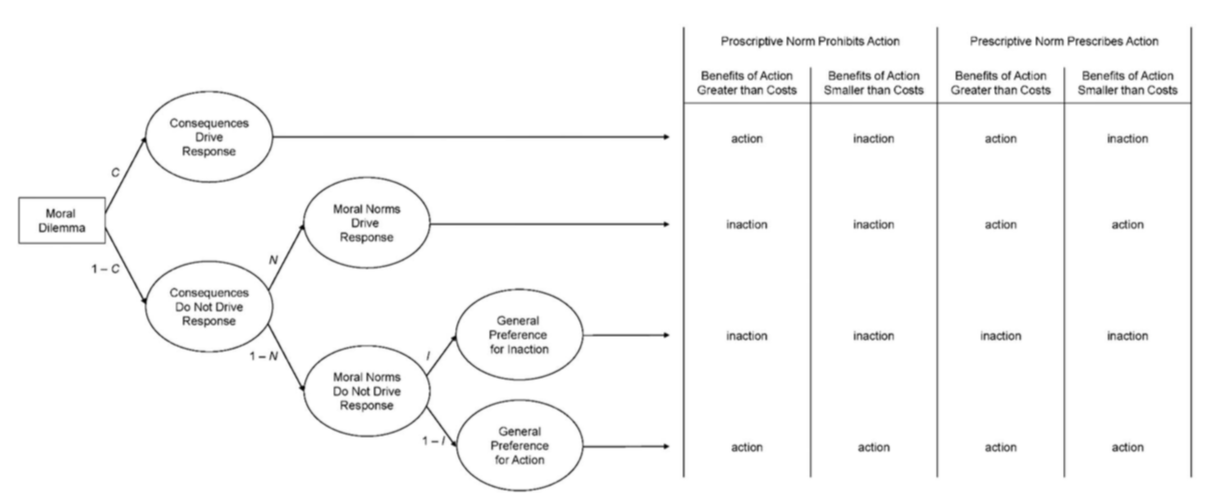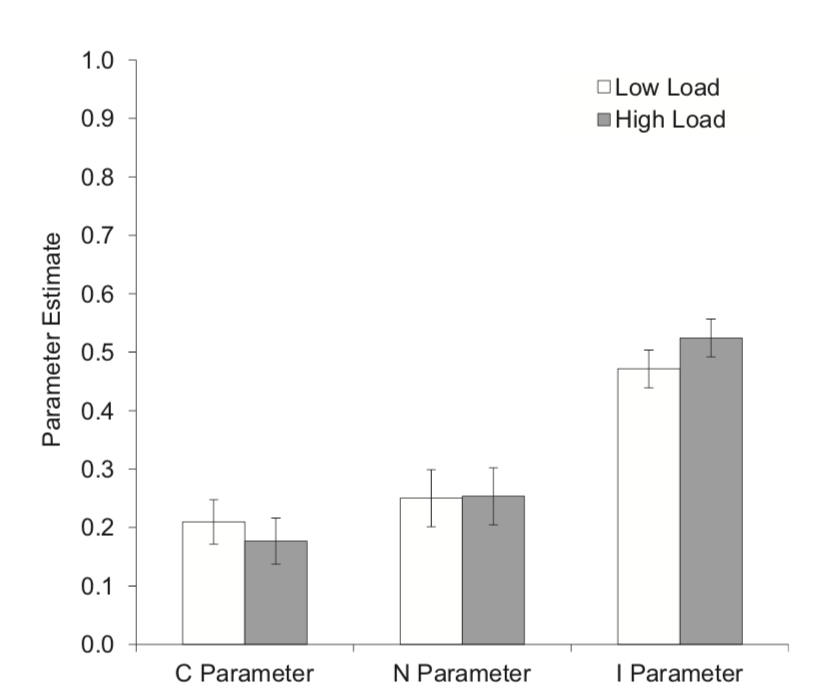Click here and press the right key for the next slide.
(This may not work on mobile or ipad. You can try using chrome or firefox, but even that may fail. Sorry.)
(If the slides don’t work, you can still use any direct links to recordings.)
also ...
Press the left key to go backwards (or swipe right)
Press n to toggle whether notes are shown (or add '?notes' to the url before the #)
Press m or double tap to slide thumbnails (menu)
Press ? at any time to show the keyboard shortcuts
The CNI Model: Beyond Trolley/Transplant
1. There is a puzzle about apparently inconsistent patterns in judgement (switch-drop).
2. We can solve the puzzle by invoking a dual-process theory ...
2.a ... where one process is faster; and
2.b the faster process is affective and
2.c less consequentialist.
3. The faster process is unlikely to be reliable in unfamiliar* situations.
4. Therefore, we should rely less on the faster (and less consequentialist) process in unfamiliar* situations.
old: switch vs footbridge
new : CNI contrast (separately manipulate outcomes and norms (proscription/prescription))
\citep{gawronski:2017_consequences}
Not consequentialist = deontological?
‘a given judgment cannot be categorized as utilitarian without confirming its property of being sensitive to consequences, which requires a comparison of judgments across dilemmas with different consequences. Similarly, a given judgment cannot be categorized as deontological without confirming its property of being sensitive to moral norms, which requires a comparison of judgments across dilemmas with different moral norms’
Gawronski et al, 2017 p. 365

Gawronski et al, 2017 figure 1

Gawronski et al, 2017 figure 4
‘The only significant effect in these studies was a significant increase in participants’ general preference for inaction as a result of cognitive load. Cognitive load did not affect participants’ sensitivity to morally relevant consequences’
‘cognitive load influences moral dilemma judgments by enhancing the omission bias, not by reducing sensitivity to consequences in a utilitarian sense’
‘Instead of reducing participants’ sensitivity to consequences in a utilitarian sense, cognitive load increased participants’ general preference for inaction. ’
Gawronski et al, 2017 p. 363
1. There is a puzzle about apparently inconsistent patterns in judgement (switch-drop).
2. We can solve the puzzle by invoking a dual-process theory ...
2.a ... where one process is faster; and
2.b the faster process is affective and
2.c less consequentialist.
3. The faster process is unlikely to be reliable in unfamiliar* situations.
4. Therefore, we should rely less on the faster (and less consequentialist) process in unfamiliar* situations.
faster = less consequentialist?
Suter & Hertwig, 2011 : yes
Bago & de Neys, 2019 : no
Gawronski et al, 2017 : no
Can we resolve the apparent contradiction by preference for inaction under time-pressure?
1. There is a puzzle about apparently inconsistent patterns in judgement (switch-drop).
2. We can solve the puzzle by invoking a dual-process theory ...
2.a ... where one process is faster; and
2.b the faster process is affective and
2.c less consequentialist.
3. The faster process is unlikely to be reliable in unfamiliar* situations.
4. Therefore, we should rely less on the faster (and less consequentialist) process in unfamiliar* situations.